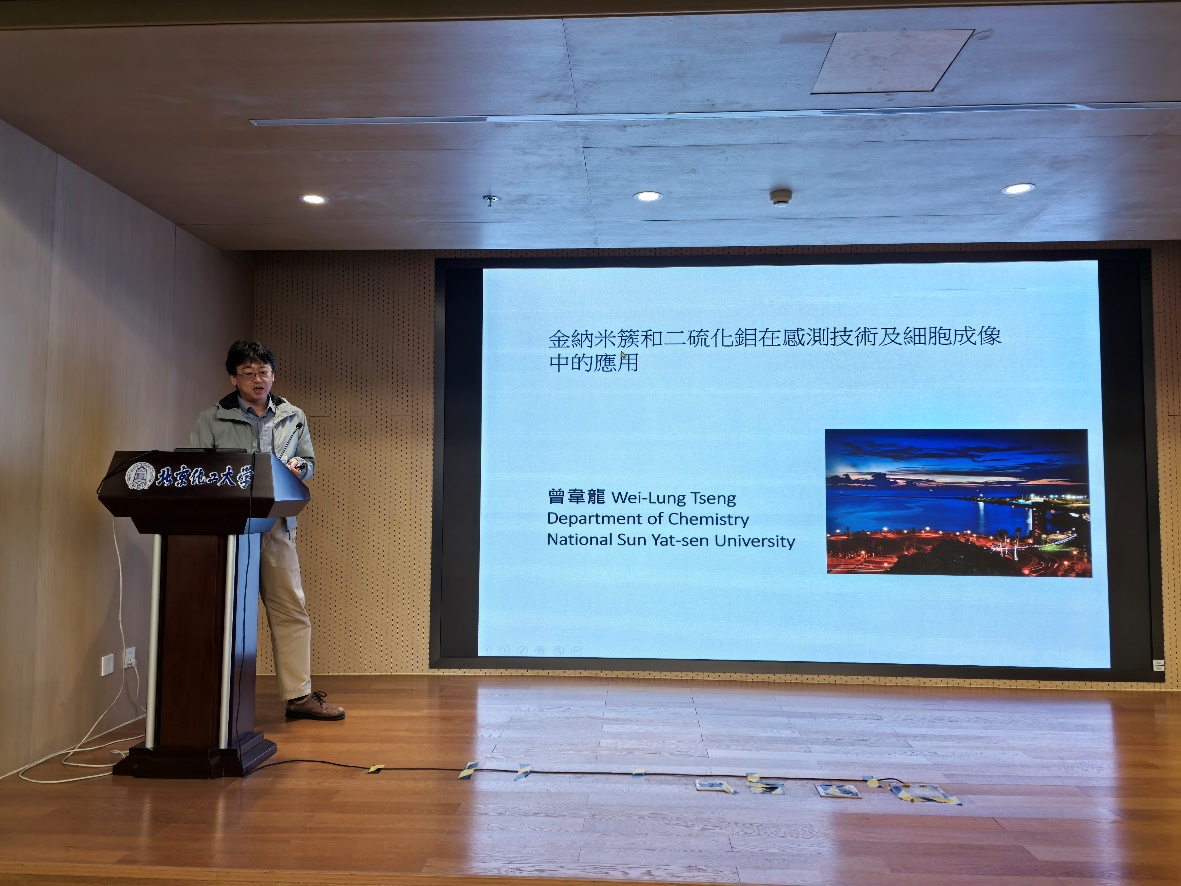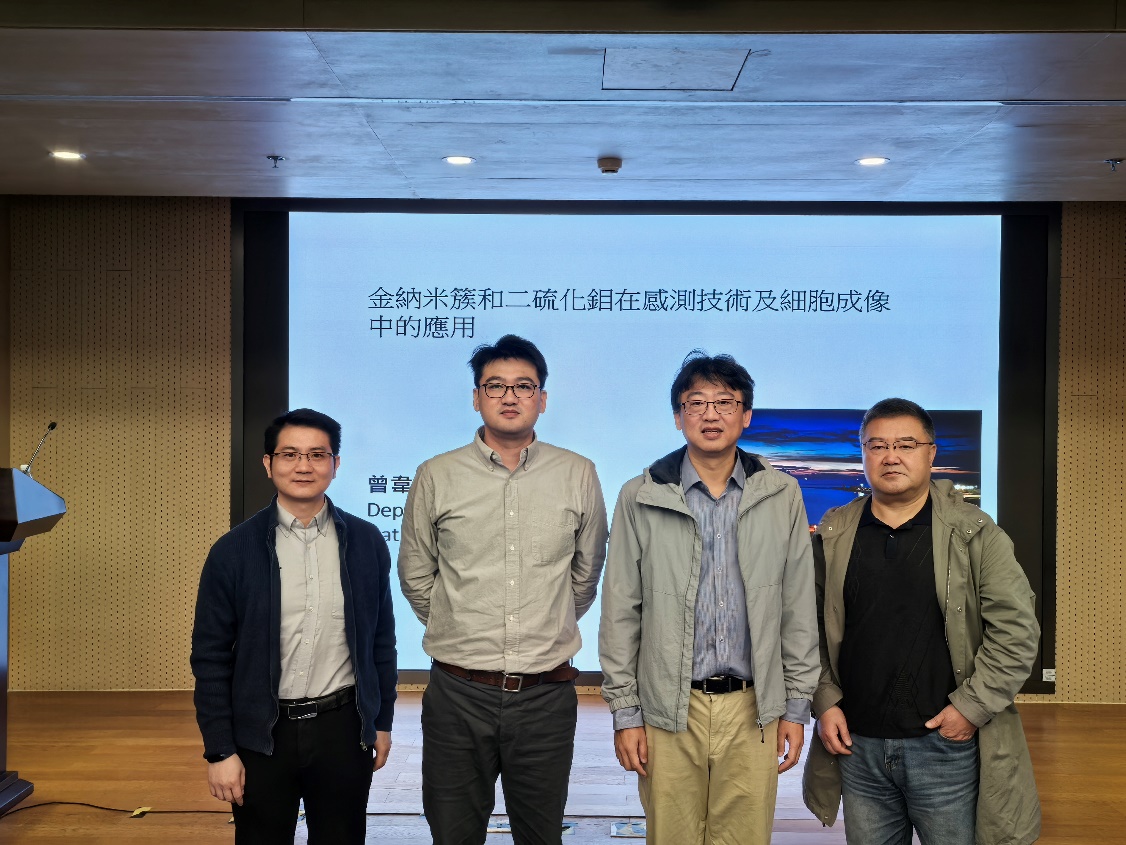At the invitation of Professor Zhiqin Yuan from the School of Chemical Engineering at Beijing University of Chemical Technology, Professor Wei-Lung Tseng (Prof. Wei-Lung Tseng) from National Sun Yat-sen University, Taiwan, visited the laboratory on the morning of November 18th and delivered an academic report titled "Applications of Gold Nanoclusters and Molybdenum Disulfide in Sensing Technology and Cell Imaging" for our faculty and students.

In this report, Professor Tseng first discussed the research progress related to the concept of gold nanoclusters and their use as sensor materials, introducing some of the relevant research work from his research group. He pointed out that gold nanoclusters modified with proteins, peptides, and other biomacromolecules, due to their programmable design of amino acid sequences, exhibit near-infrared emission and high quantum yield. The stability and quantum yield of gold nanoclusters can be greatly improved after modification with various macromolecules. Professor Tseng also highlighted the study of single gold nanocluster imaging analysis, which is the first observation of the blinking phenomenon of gold nanoclusters. He also explained the research on gold nanoclusters for super-resolution imaging analysis, which has successfully achieved localization and imaging of various subcellular organelles such as lysosomes and mitochondria. In addition, Professor Tseng briefly introduced the application progress of molybdenum disulfide materials. At the end of the report, he interacted with the faculty and students present and shared some insights and suggestions on the synthesis and control of gold nanoclusters, which were met with rounds of applause.

Introduction to Professor Wei-Lung Tseng:
Professor and doctoral supervisor in the Department of Chemistry at National Sun Yat-sen University, Taiwan. He graduated from the Department of Chemistry at Fu Jen Catholic University in 1997 and obtained his Ph.D. in Chemistry from National Taiwan University in 2002. He was a postdoctoral researcher in the Department of Chemistry at National Taiwan University from 2003 to 2005. He has received awards such as the Outstanding Young Chemist Award from the Chinese Chemical Society in Taiwan, the Outstanding Young Scholar Award from the Shui Mu Chemistry Education Foundation, and the Wu Da-You Memorial Award from the Ministry of Science and Technology in Taiwan. To date, he has published over 190 high-level academic papers in international core journals such as Adv. Mater., Adv. Funct. Mater., Chem. Eur. J, and Anal. Chem., with a cumulative citation of over 8,000 times and an h-index of 54. Professor Tseng, due to his outstanding scientific research level, currently serves as an associate editor or editorial board member for many journals, including the Journal of the Chinese Chemical Society, Frontiers in Chemistry, Chemosensors, and Biosensors. He is also listed consecutively in the top 2% of the world's leading scientists published by Stanford University and the top scientists in the field of chemistry on Research.com. Professor Tseng's research group is currently dedicated to developing sensitive analytical methods for detecting biological and environmental samples, as well as developing novel nanomaterial synthesis methods and applying them to the removal of environmental pollutants. The group has made breakthrough progress in surface-enhanced Raman scattering with the nanomaterials developed in recent years.
